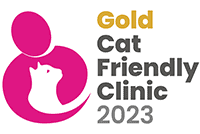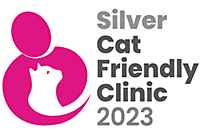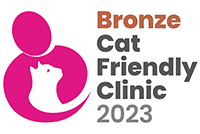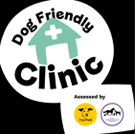Could you please introduce yourself and tell us a little about your career to date.
I am Robin Hughes-Parry, and after qualifying, I spent twenty-five years in mixed general practice. With the advent of the last outbreak of Foot and Mouth disease and the ongoing gradual decline in rural farm work, I decided the time was correct to concentrate on the small animal side of practice. Since then I have run the clinic at Longstanton. However with increasing specialist knowledge, improved operations and procedures there has been a trend towards using referral centres for some cases. The clinic at Longstanton and myself have continued to concentrate on the all-important first opinion work
What challenges you most about being a vet?
The difficult medicine cases where nothing fits the bill, there are no real pointers, but you still have an ill animal to deal with that is not eating and going downhill.
The very occasional client, but there is usually a reason for it. They may have a real concern for their pet, a private matter or maybe a concern regarding the finance.
What excites you most about veterinary medicine?
The clinical challenges that general practice continues to come up with. Very few cases are the same, there is always a difference. The regime, the treatment, the client approach has to be different and refined in each case.
Why did you choose Village Vet?
For their level of healthcare; above that of the standard practice. The kind and empathetic approach of the staff to the animals and their clients.
At your practice, what are some of the most common preventable ailments that you come across and can you provide us 3 top tips in relation to them for pet parents?
Obesity, bad behaviour some dogs towards other dogs and feeding wet and pouched feed,
1. First and foremost feed a calorie controlled diet. Always feed half a treat, always “think calories”. Exercise works for weight reduction if you have a Welsh Collie on the hills or a greyhound in training. The majority of the weight gain in animals is from too many calories.
2. Lack of training. Puppy socialisation needs to be from an early age. Puppies need discipline.
3. Dental plaque and scale. The build-up of tartar happens naturally but can be slowed down by not feeding too much tinned, pouched or wet feed.
What advise would you give to future veterinarians who are thinking about a career in veterinary medicine?
Commitment to their work. They must have empathy, and a real understanding of their clients from the word go. The rewards are not financial but in knowing that they have helped in someway.












